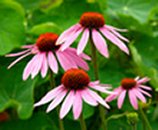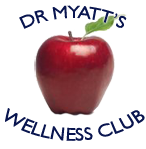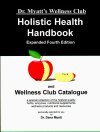Echinacea (E. angustifolia, purpura)
Natural Immune System Booster
 Echinacea is one of the most popular herbs for stimulating and boosting the immune system. It acts as an immune stimulant, immune modulator (balances the immune system), anti-viral and anti-bacterial.
Echinacea is one of the most popular herbs for stimulating and boosting the immune system. It acts as an immune stimulant, immune modulator (balances the immune system), anti-viral and anti-bacterial.
Echinacea, also known as the purple coneflower, is a native American herb with an impressive record of laboratory and clinical research. Echinacea has long been used by North American Plains Indians shamans and today thousands of modern healers use echinacea for treating infectious diseases. It was often used in modern American medicine in the early 20th Century, and became popular with Europeans, who have used it extensively since the 1930s. Today millions of Europeans use echinacea as a primary therapy for colds, flu's, infections, and for it's general immune-boosting effects.
Primary uses of echinacea include:
- Colds, coughs and flu and other upper respiratory conditions
- Enlarged lymph glands, sore throat
- Urinary tract infections
- Other minor infections
- May help combat herpes and candida
- Wounds, skin regeneration and skin infections (external use)
- Psoriasis, eczema and inflammatory skin conditions (external use)
Echinacea increases the "non-specific" activity of the immune system stimulating the overall activity of the cells responsible for fighting all kinds of infection. Unlike antibiotics, which are directly toxic to bacteria, echinacea makes our own immune cells more efficient in attacking bacteria, viruses and abnormal cells, including cancer cells.
Echinacea facilitates wound healing and reduces the symptoms of and speeds recovery from viral infections. It's anti-inflammatory effects make it useful externally against inflammatory skin conditions including psoriasis and eczema. It may also increase resistance to candida, bronchitis, herpes, and other infectious conditions.
Hundreds of scientific studies have documented the chemistry, pharmacology, and clinical applications of echinacea. The most consistently proven effect of echinacea is in stimulating phagocytosis, which is to encourage white blood cells and lymphocytes to attack invading organisms.
Specific actions of echinacea include:
- increases the number and activity of immune system cells, including anti-tumor cells:
- promotes T-cell activation;
- stimulates new tissue growth for wound healing;
- reduces inflammation in arthritis and inflammatory skin conditions;
- Mild antibiotic action: bacteriostatic, anti-viral, anti-fungal.
- inhibits the bacterial enzyme hyaluronidase, to help prevent bacterial access to healthy cells.
Specific studies of echinacea include:
- An extract of echinacea showed an increase of 50%-120% in immune function over a 5 day period (Jurcic, et al. 1989).
- An extract of echinacea significantly increased the resistance to flu and reduced the symptoms of lymph gland swelling, inflamed nasal passages and headache (Braunig, et al. 1992).
- Of 4500 patients with inflammatory skin conditions, including psoriasis, 85% were cured with topical applications of echinacea salve (Wacker & Hilbig, 1978).
- Human white blood cells, stimulated by echinacea extract increased phagocytosis (consumption) of yeast cells by 20-40% compared to controls. (Wagner and Proksch 1985)
Echinacea has an excellent safety record and there is no known toxicity. However, according to the German Kommission E, echinacea should not be used in progressive systemic and auto-immune disorders such as tuberculosis, leicosis, connective tissue disorders, collagenosis and related diseases such as lupus. Further, its use in AIDS or opportunistic infections in AIDS patients is controversial.
It should be noted that echinacea is not appropriate for chronic use: with such long-term use, echinacea appears to lose it's effectiveness. Maximum periods of continuous use should not exceed 6 - 8 weeks.
Echinacea is not a substitute for other medical interventions in rapidly accelerating infections. If a condition persists or worsens, seek medical advice. Many serious medical conditions are not appropriate for self-diagnosis or self-medication and require the supervision of qualified health care providers.
Additional Reading and References:
- Echinacea, Nature's Immune Enhancer by Stephen Foster. Healing Arts Press, 1991.
- Echinacea, the Immune Herb by Christopher Hobbs. Botanica Press, 1990.
- Botanical Influences on Illness by Melvyn Werbach and Michael Murray. Third Line Press, 1994. See chapters on Cancer, Candidiasis, Immunodepression, Infection, Wound Healing.
- Herbal Medicine by Rudolf Weiss. AB Arcanum, 1988.
- The Lancet Infectious Diseases 2007; 7:473-480 Review Evaluation of echinacea for the prevention and treatment of the common cold: a meta-analysis http://www.thelancet.com/journals/laninf/article/PIIS1473309907701603/abstract
- British Herbal Pharmacopeia, 1992.
- Kommission E Monographs: Echinacea. Kooperation Phytopharmaka, , Germany.
- Jurcic, et al. Zeitschrift fur Phytotherapie 10 (2), 1989.
- Braunig, et al. Zeitschrift fur Phytotherapie 13: 7-13, 1992.
- Wagner and Proksch 1985 In: Economic and Medicinal Plant Research, Academic Press, Orlando, p.113.
- Wacker & Hilbig. Planta Medica 33(1): 89-102, 1978.
- Chone & Mandakis. Deutsch Med. Wschr. 27: p. 1406
- Luettig, et al. J. Natl. Cancer Inst. 81(9): 669-75, 1989.
- Stimpel, et al. Infect. Immun. 46, 845, 1984;
- Steinmuller, et al. Int. J. Immunopharmac., Vol. 15, No. 5, pp. 605-614, 1993.




 Echinacea
Echinacea


